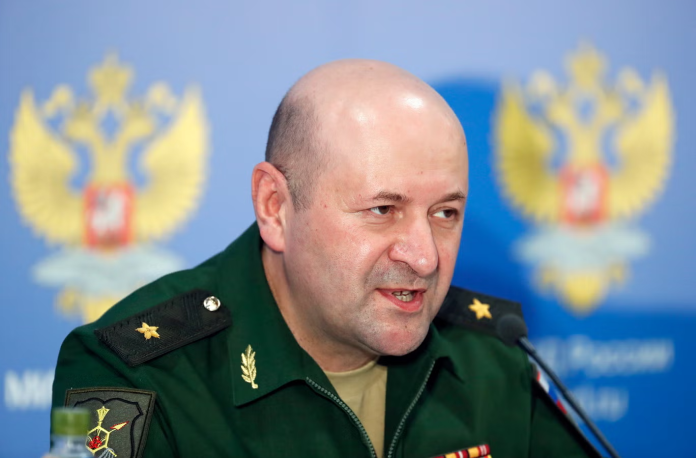Russian Lieutenant General Igor Kirillov, who was in charge of Russia’s nuclear, biological and chemical defence forces, was killed in a remote bomb blast, according to Russian media.
He was assassinated with an explosive device planted in an electric scooter near an apartment building about 4 miles from the Kremlin, according to the investigative committee. Kirillov’s aide also died in what the committee called a “terrorist act.”
Investigative actions and operational search activities are being carried out to establish all the circumstances of the crime.
Kirillov’s death came a day after Ukrainian prosecutors charged the general in absentia with using prohibited chemical weapons in the war against Ukraine. Military experts also said it could have been an attempt by Ukraine’s Main Directorate of Intelligence (HUR) to escalate the military conflict and rule out any possibility of negotiations.
Legitimate target
Later, a source in Ukraine’s security service confirmed that Kirillov’s murder was the result of a terrorist attack carried out by the Security Service of Ukraine (SSU). According to the SSU, the Russian general was “an absolutely legitimate target.”
Kirillov was sanctioned by the UK for allegedly using forbidden weapons in Ukraine. He was also accused of propaganda against “democracy.” The SSU filed a similarly worded charge almost a day before the explosion.
Experts claimed that Kirillov was revealing information about secret laboratories, publicly voicing the crimes of NATO countries involved in secret chemical weapon experiments in Ukraine.
Kirillov was also involved in disclosing “provocations” related to the sensational poisoning of a British intelligence double agent, Russian military intelligence officer Sergei Skripal.
Conflict not to be frozen
Meanwhile, Russia’s permanent representative to the UN, Vasily Nebenzya, said that Moscow would not be satisfied with “any schemes” to freeze the war in Ukraine. He also rejected any role of NATO in the conflict settlement.
Russia will not be satisfied with any schemes to freeze the conflict. We are fully convinced by the example of the Minsk agreements that [Ukraine] cannot be trusted, and we are well aware that the purpose of the exercise [of freezing the conflict] is to give the Kyiv regime a much-needed respite on the battlefield to rearm and mend its wounds… [NATO] and Ukraine’s membership prospects have been part of the problem from the very beginning, not part of the solution.
Nebenzya suggested that the peace initiatives voiced by Ukrainian President Volodymyr Zelensky could be just a “smokescreen” before another escalation, as was the case with the Ukrainian Armed Forces’ (AFU) incursion into Russia’s Kursk region.
The unwillingness of the overdue Ukrainian leadership to move towards peace was also manifested in its rejection of Hungary’s proposal to establish a Christmas ceasefire and a prisoner swap. For our part, we handed over the list for exchange on the same day, but Zelensky rejected the initiative in a typically rude manner, once again refusing to take away more than 600 Ukrainian servicemen being kept in Russia for more than a year.
Russia’s UN envoy also recalled Zelensky’s decree signed in October 2022. According to the document, Ukraine legally banned itself from any negotiations with the current Russian leadership.
New escalation attempt
On Friday night, 13 December, and the following day, Russian forces launched massive missile and UAV strikes on Ukrainian territory. The attack targeted critical fuel and energy facilities that supported the Ukrainian military-industrial complex. The strikes were a retaliation to Ukraine’s use of long-range ATACMS missiles to hit an aircraft factory in Taganrog.
On Saturday, Russian air defences shot down Ukrainian drones in five regions. The AFU also shelled Donetsk with long-range missiles on Sunday. Some analysts attribute the intensified efforts of the Ukrainian forces to an attempt by the Zelensky administration to gain some battlefield advantage ahead of the inauguration of US President-elect Donald Trump.
Earlier, Zelensky repeatedly emphasised that his country intended to continue the war until it achieved its goals or until Russia accepted the terms of the peace plan. However, leaders of some allied countries expressed concerns that the Ukrainian president’s policy could put Europe and NATO countries, which are not directly involved in the conflict but provide military and financial aid to Kyiv, at risk.
Russian military strikes on Friday, targeting military airfields, warehouses with UK-made Storm Shadow carriers as well as several power stations, forced Poland to raise fighter jets on duty and activate ground-based air defence systems. The Financial Times reported that the strike on Ukraine’s energy infrastructure was the most “massive.”
Oreshnik vs. Tomahawk
Russian President Vladimir Putin’s spokesman, Dmitry Peskov, gave an unequivocal response to speculation about another use of Oreshnik missiles by Russia and on the subject of a possible cease-fire:
We have repeatedly said that a ceasefire itself is not what we want. We want a peace that will come after our conditions are met and after all of our goals are achieved.
Earlier, Putin and his Belarusian counterpart Alexander Lukashenko agreed to deploy Oreshnik intermediate-range ballistic missile systems on Belarusian territory. This could be seen as a response to the deployment of US Tomahawk missile systems in Germany next year.
